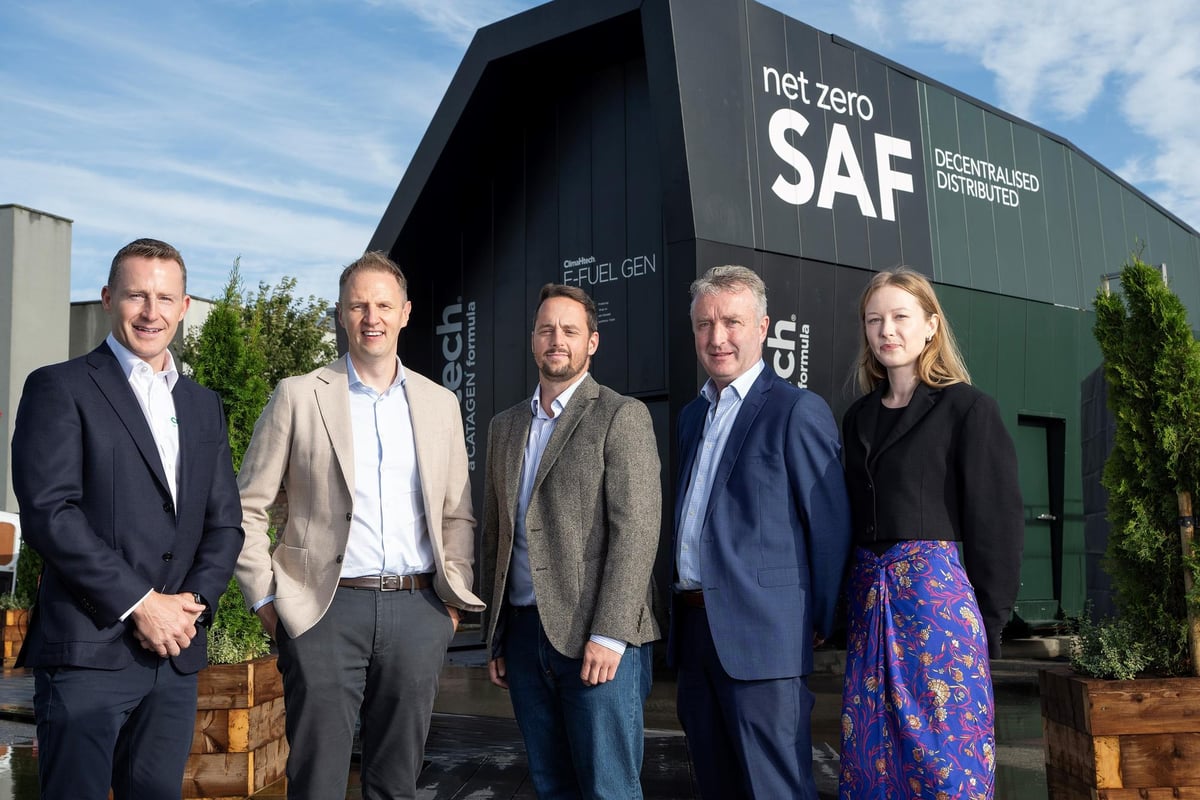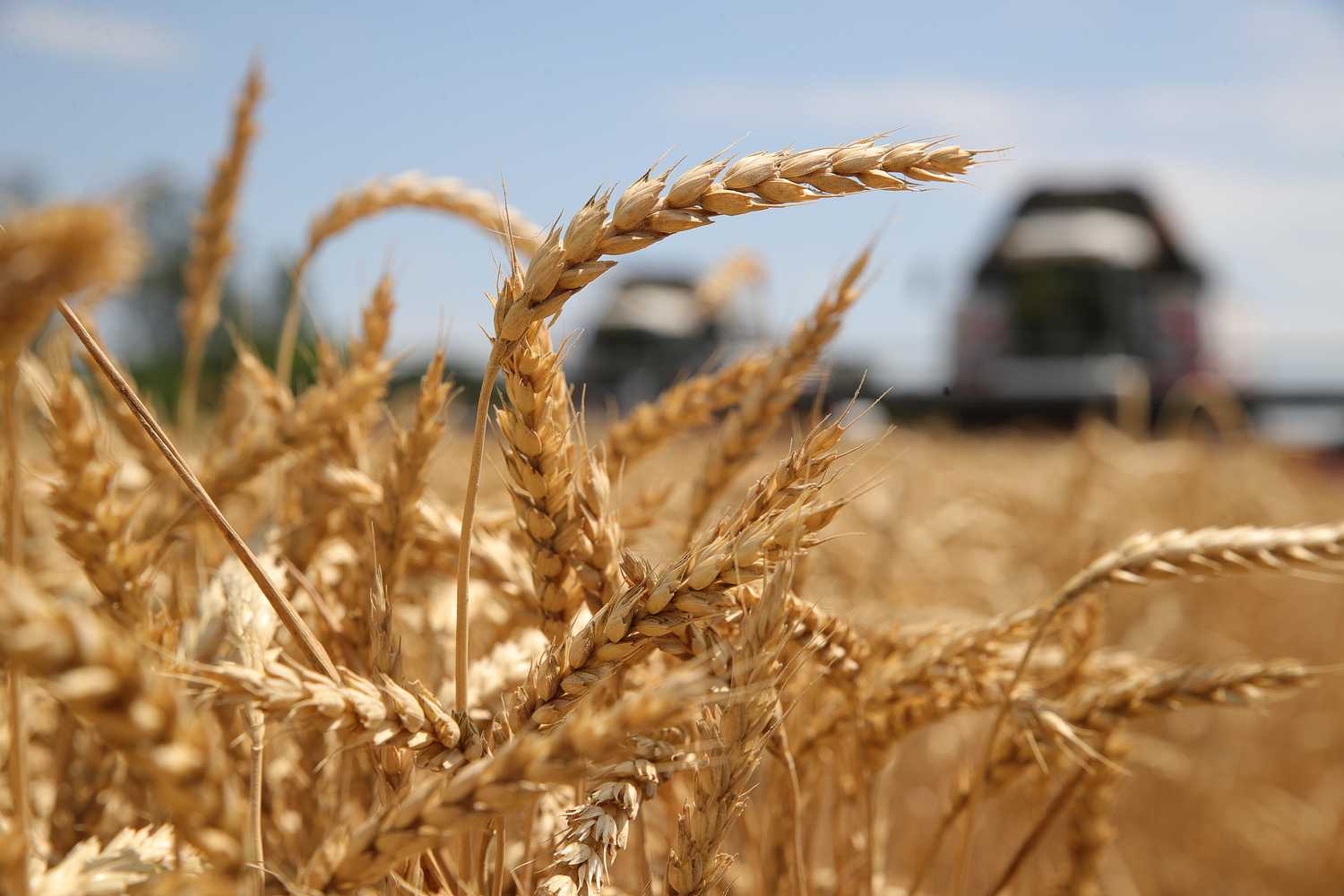New Belfast company will create sustainable aviation fuel using modular, off-grid technology — backed by Ryanair and Shell Aviation
By Claire Cartmill
Copyright newsletter

A new sustainable aviation fuel company has been launched, using first-of-a-kind disruptive energy technologies. CATAGEN, a clean energy engineering company based in Belfast, has officially launched a new sustainable aviation fuel (SAF) business – ClimaHtech Green Flight (CGF) – at its Titanic Quarter campus. ClimaHtech Green Flight, a wholly owned subsidiary of CATAGEN, will produce SAF using patented modular reactor technology powered by off-grid renewable and low-carbon electricity. This decentralised approach means production can continue even during grid disruptions, offering greater resilience and flexibility. Unlike traditional SAF projects that rely on large centralised facilities, ClimaHtech’s modular production units are designed to be manufactured off-site and quickly deployed close to renewable energy sources or directly at airports. This allows fuel to be made where it’s needed most, with minimal infrastructure delays. Each unit will use an industrial waste stream and renewable power to produce up to 1 million litres of SAF annually. The fuel offers a more than 90% reduction in emissions from production to flight, compared to conventional fossil jet fuel. As part of the launch, CATAGEN announced strategic partnerships with Ryanair and Shell Aviation, who have signed offtake agreements to support the production and use of this next-generation sustainable fuel. Steven Fitzgerald, Ryanair director of sustainability & finance, explained: “Progressing towards our sustainability goals depends on securing scalable and affordable SAF. “CATAGEN’s decentralised SAF model allows production to be brought closer to demand, enabling faster deployment and reducing the bottlenecks that slow down traditional SAF projects. We see this as a critical pathway to reducing our emissions while continuing to deliver affordable travel.” Ken McHutcheon, supply & operations manager, Shell Aviation Ireland, continued: “Shell Aviation is committed to scaling sustainable aviation fuel, but the industry needs both volume and speed. CATAGEN’s decentralised, modular approach provides a new way of producing SAF that can complement centralised facilities, shorten timelines, and provide more flexible access to fuel. This model has the potential to reduce reliance on imported SAF, increase energy independence, unlock new markets and accelerate the industry’s journey to net zero.” Mel Courtney, CEO ClimaHtech Green Flight, added: “The UK has a mandate to have 10% of flights using SAF by 2030, with the EU having a 70% target by 2050. On current supply, these targets are ambitious, with the International Air Transport Association currently estimating demand surpassing 360 million tonnes by 2050, up from 1 million tonnes that were available in 2024. “To reach these targets, we need technologies that can be scaled up alongside the development of surrounding infrastructures around airports. In the UK, challenges around energy security have been made clear, hence the push from government to increase our use of renewables in the grid. Our approach to SAF should match this approach and be accessible to the market where it is needed to be deployed. “The launch of ClimaHtech Green Flight is the next step in our plan to decarbonise the aviation industry.” CATAGEN was the first company to submit a SAF sample to the EU SAF Clearing House in 2024 and is progressing through fast-track certification on the ASTM D7566 Annex A1 approved pathway. The company’s pre-production units, supported by the UK Department for Energy Security and Net Zero, are already operational. CATAGEN’s first-of-a-kind (FOAK) SAF production system will reach commercial operation in a short time horizon, producing 1 million litres of SAF per year. With these offtake partnerships in place, CATAGEN is now positioned to scale a network of decentralised production units worldwide, offering production sites up to 10 million litres.



